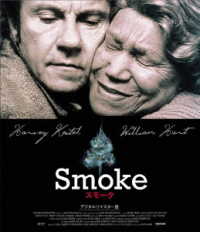Full Description
In Laying Claim: African American Cultural Memory and Southern Identity, Patricia Davis identifies the Civil War as the central narrative around which official depictions of southern culture have been defined. Because that narrative largely excluded African American points of view, the resulting southern identity was monolithically white. Davis traces how the increasing participation of black public voices in the realms of Civil War memory-battlefields, museums, online communities-has dispelled the mirage of 'southernness' as a stolid cairn of white culture and has begun to create a more fluid sense of southernness that welcomes contributions by all of the region's peoples.
Laying Claim offers insightful and penetrating examinations of African American participation in Civil War reenactments; the role of black history museums in enriching representations of the Civil War era with more varied interpretations; and the internet as a forum within which participants exchange and create historical narratives that offer alternatives to unquestioned and dominant public memories. From this evolving cultural landscape, Davis demonstrates how simplistic caricatures of African American experiences are giving way to more authentic, expansive, and inclusive interpretations of southernness.
As a case-study and example of change, Davis cites the evolution of depictions of life at Thomas Jefferson's Monticello. Where visitors to the site once encountered narratives that repeated the stylized myth of Monticello as a genteel idyll, modern accounts of Jefferson's day offer a holistic, inclusive, and increasingly honest view of Monticello as the residents on every rung of the social ladder experienced it.
Contemporary violence and attacks about or inspired by the causes, outcomes, and symbols of the Civil War, even one hundred and fifty years after its end, add urgency to Davis's argument that the control and creation of public memories of that war is an issue of concern not only to scholars but all Americans. Her hopeful examination of African American participation in public memory illuminates paths by which this enduring ideological impasse may find resolutions.
Contents
List of Figures
Acknowledgments
Cultural Memory and African American Southern Identity: An Introduction
Chapter 1. Ghosts of Nat Turner: African American Civil War Reenactment and the Performance of Historical Agency, Citizenship, and Masculinity
Chapter 2. So That the Dead May Finally Speak: Space, Place, and the Transformational Rhetoric of Black History Museums
Chapter 3. From Old South to New Media: Museum Informatics, Narrative, and the Production of Critical History
Conclusion: Southern Identities in the Twenty-First Century
Notes
References
Index
-

- 電子書籍
- オタクOLと年下男子~私の推しはキミじ…
-

- DVD
- 極道弁護士 綾小路春彦






